ACE in the Hole: Neglect in Horror Games
About Adverse Childhood Experiences (ACEs) such as neglect in horror games, starring Killmonday Games' Little Misfortune.
Content Warning: this article discusses “averse childhood experiences,” which include things like abuse and neglect. As always, I try to discuss this at a very high level and in a scholarly fashion to prevent things from being triggering to anyone who has experienced them, but please use your own discretion upon reading.
This article also contains spoilers for Little Misfortune (2019).
Overview
For many people, childhood is associated with feelings of warmth. Of safety. Of feeling free to grow, learn, and make mistakes. Free from the obligations and anxieties of adulthood. And for others: not so much. Childhood is a critical time in the development of an individual: physically, emotionally, and socially. As children grow and interact with the world around them, their brain and nervous systems take in critical information: what is my place in this world? Is it safe to be in this world? Am I loved, cared for, and part of a community? The answers to these foundational questions have the potential to shape a child's entire life from the get-go. And when things go as planned, the lasting impact of a childhood well-spent is a positive one. But that's not always the case.
Adverse Childhood Experiences (ACEs)
Adverse Childhood Experiences (or ACEs) are a category of potentially traumatic experiences studied and catalogued in the field of psychology. By categorizing the wide variety of negative childhood experiences into several quantifiable buckets, it essentially allows psychologists and sociologists to have more data for tracking, treatment, and prevention of abuse and neglect.
Now, of course, as the ACE system is, in short, a measure of how difficult one's childhood was, you can imagine that there already needs to be 10,000 disclaimers. There is no "objective" way to measure negative, traumatic experiences or their impact as we have previously discussed on this blog. An event which was traumatic to one individual might not be considered as such for another person. The reasons for this are not completely understood, but factors such as temperament, emotional support, and childhood experiences leading up to the potentially-traumatic incident are thought to play a role. That's why ACEs are considered potentially traumatic, not inherently traumatic. However, data indicates that the larger in number that you’ve experienced, something colloquially called your "ACE score," the likelihood of them becoming traumatic increases.
One's ACE score is determined by a self-administered quiz based on a series of yes or no questions. For every "yes" response, you receive one point. It's these points that drive the data behind the system and make it quantifiable.
According to the Center for Disease Control 61% of adults have at least once ACE: whether that was getting bullied in school or your parents undergoing a divorce. Even one or two points can leave a lasting impression on a person, but it's when these points start to stack up that startling, long-term trends begin to appear in regards to the health, happiness, and longevity of the individual… and 16% of adults were found to have 4 or more.
(Source for the above infographic, which goes further into detail, can be found here.)
Neglect
When we think of child maltreatment or endangerment, the concepts that usually come to mind first are "active" ones. That is: an adult is actively exhibiting behavior towards a child that is harmful, unacceptable, or abusive in nature. These are actions which take intention - they take effort on the part of the abuser. But what if I told you that the most common form of child abuse is actually "passive"? Although data regarding child maltreatment is notoriously difficult to quantify due to lack of reporting, numbers consistently detail that the most common form of abuse is actually its quieter cousin: neglect.
Like abuse, neglect comes in many forms. At the core of this behavior is paradoxically a lack of behavior: neglect is characterized by a failure of being cared for. And when you take into consideration the myriad of ways that a child requires care, you begin to see the intricacies and many unfortunate forms that this particular mode of abuse can take.
One particularly common form of neglect is "emotional neglect," wherein a parent is unable to tend to the emotional needs of their child. While this seems like it may be benign on the surface, emotional neglect can be dramatically harmful to a child's proper development, which relies partially on "attachment" to their primary caregiver. As we noted in our article about The Path, the Erikson stages of development begin from the moment a child is birthed into the world. The very first "challenge" or "crisis" of the first stage, is to merely understand that their needs will be met. If a baby is hungry and it cries - will its mother feed it? If they're cold, will someone swaddle them? If they're tired, will someone put them down for a little nap?

Understanding that there is someone who is caring for them is critical for the survival of the individual, and if they come into the world with the immediate understanding that this is not the case, and that they are not being looked after, the developmental damage can cascade for a lifetime if not treated. Emotional neglect is also the "sneakiest" form of neglect, as it can be happening without anyone outside of the family aware of it. That's not the case for the other most common kind of neglect: physical.
Physical neglect can be sneaky, too, but it's much harder when a child is younger and cannot care for themselves. Physical neglect also takes many forms: perhaps a child is not given the proper basics for survival - adequate food/nutrition, clothing, or even shelter. Perhaps the child has the basics of survival, but nothing more, and is left to their own devices without proper parental supervision for hours or potentially even days at a time. While this is direct abuse, it's also child endangerment, as a kid could end up in a dangerous situation without a parent to assist them should they get hurt or get into trouble.
As exhibited by the ACE scoring criteria, merely exposing your child to criminal activity and domestic violence is also a form of neglect, as a child does not need to be directly the victim of abuse to be impacted by it. Children are looking to the world around them to learn about themselves and how they fit into it. What is a child to believe when the world is giving them feedback that it’s a scary place, and potentially even that they aren't wanted here?
...And then what if someone made a game about it?
Who Names Their Kid Misfortune???
Little Misfortune (2019) by Killmonday Games might look somewhat familiar to you if you're either an indie horror girlie like myself or a reader of this publication. Made by the same team that made Fran Bow, Little Misfortune tells the story of a young girl whose name is literally Misfortune as she makes her way in the world. Based on a Telltale Games-style "choices will be remembered” mechanic, Little Misfortune is a cinematic experience that can be played in one sitting in just under three hours (ask me how I know). But much like with its predecessor and ACEs in general, it will leave a lasting impact on the player.
Despite what her name might imply, Misfortune is a cheerful young girl who is highly enthusiastic about the same sorts of things most girls are: including glitter. From the very start of the game, the player is told by the velvet-voiced narrator that Misfortune is a lovely little girl... who is going to die today. Misfortune immediately balks at this and the narrator is surprised that she can actually hear him. Misfortune aptly dubs the narrator Mr. Voice, and Mr. Voice has a proposition for her. He's quite fond of playing games, and if she is able to complete the game, she will receive a fantastic prize: everlasting happiness. Sounds pretty good, right?
Misfortune tells Mr. Voice that she wants to play - but not to claim the prize for herself. Instead, she wants to win the game and give the prize of everlasting happiness... to her mother. While we can infer that Misfortune is closer with her mother than father (who we never see at all), the figure of her mother appears very distant. Most notably, alongside all other adults in Openfields, the small town where Misfortune lives, she wears a mask. The masks are simple, white ovals which have rudimentary faces drawn on them in a manner which reminds me of decorating paper plates in elementary school.
Children do not wear these masks in this world, but no adult (with one exception, no spoilers here) is ever seen without them. The symbolism here isn't subtle: the adults are hiding their real faces, instead opting for placid looking faces doodled on a two-dimensional mask. We can infer that this is emblematic of a shunning of the self: refusing to acknowledge one's own emotions that are so often written on our faces. Misfortune takes things upon herself as neglected children are often forced to do, and sprinkles glitter on her less than pleasant surroundings, using her imagination to make them into something that they're not.
This is Misfortune's quiet power among the scores of masked adults: she uses her imagination to express her emotions in the unique way that children can. But the adults of Openfields operate differently - from a place of hiding. And sure, hiding is an easy way to exist, but strikes me as a terrible way to live. The adults of Openfields aren't just neglecting the community's children, they're neglecting themselves, too.
Danger Looms… But Who Even Notices?
Beyond the masks, Openfields is a strange community. Recently, several children have gone missing. As Misfortune walks around the environment of her city (without supervision save for Mr. Voice, mind you), we see their missing persons fliers posted frequently. Usually, if several children in the same community had vanished without a trace, a near state of emergency would be called. Children would rarely be let out of their parents' sight for fear of some sort of serial kidnapper, murderer, or human trafficker. Yet in Openfields... no one really seems to care. The faces of the children in the posters stare out at the viewer, hoping that someone, anyone, will care enough to find them. Even Misfortune pays them little mind. And as we walk through her community and interact with the various objects around her, Misfortune tells us stories about her memories associated with them.
And let's just say... they're often a little bit shocking.
In the clip below, from 1:06 - 2:24 showcases two of Misfortune’s anecdotes that leave the streamer a little… concerned.
Watching streamers play this game is always hilarious, especially when they have a camera on themselves to capture their expressions.
In truth, the banality of Misfortune's delivery is part of what's so shocking. Her mother did what while she what? But Misfortune hardly appears to even clock that this behavior is abnormal, let alone harmful -as unfortunately children may not know that what they’re experiencing is unacceptable. However, it’s important to note the response of Mr. Voice. Though subtle, we quickly begin to get the idea that even though he is surely leading her astray, even he is shocked at her experiences. Not enough to prevent him from trying to eat her soul or whatever, but enough that his "oh... I see..."s carry some weight.
We can so easily see how the adults of her life have failed her, setting her up to be the perfect target for such a malevolent creature to take advantage of her and her unmet needs. But Mr. Voice, though we get the feeling that he's clearly not behaving out of altruism, is a bit more complicated than he seems. After hearing that Misfortune has experienced so many, well, misfortunate things in her life, it appears as though he extends her a bit of compassion before eating her soul.
One of my favorite portions of the game is when Mr. Voice has clearly been paying attention to what Misfortune has expressed wanting to do (unlike the other adults in her life), one of which includes attending a Halloween festival in town that day called Phantasmogoria.
Using his magic, Mr. Voice is able to get her a ticket, granting her one last night of fun before she... well... dies. It's difficult to determine how much of this can be interpreted as genuine care, if not pity. Perhaps he really feels she deserves at least one day of fun. Perhaps that's not the case at all, and he merely thinks that if he is kind to her, she will be more willing to follow him to the end of his "game." This is left to the player to speculate on in a way that's really narratively compelling to me.
Of course, the antidote to this whole thing comes in a rather unusual shape as well.
A fox.
Care: the Antidote to Neglect
Misfortune tells Mr. Voice early in the game that she has been seeing a cute, red fox outside her window and has taken to calling him Benjamin, although it's impossible to know if that's truly his name (or indeed, if foxes have names at all).
Benjamin is an enigmatic figure over the course of the game, appearing aloof and disinterested in Misfortune (much like everyone else in her life). Mr. Voice also addresses him with a disdain that hints that the two may have crossed paths in the past - and that they aren't exactly big fans of each other. Despite how Misfortune tries to draw his eye, Benjamin is frequently shown immediately fleeing every time she gets close, an act that she interprets as hurtful.
But something shifts around the second half of the game. Misfortune finds some of Benjamin’s documents containing detailed instructions, one of which being: do not contact or engage in any way with whoever is the host of the parasite. It turns out, Benjamin does care about Misfortune in a way that no one else ever has. Neglect got her into this terrifying situation. Care and companionship will get her out.
I won’t tell you exactly how, however. You can’t expect me to give everything away!
Final Thoughts
Examining the relationship that neglect and horror have in Little Misfortune leads to more questions than answers. But it makes sense that at the center of it: children, and all people in general, are just looking for someone to care.
At the end of the line, when all hell is breaking loose, all they want is for someone to tell them that it's alright. That they'll be kept safe, like they were supposed to have been all this time. My Resident Evil obsessed self immediately thinks of Sherry Birkin in Resident Evil 2, who was only a child but was searching the zombie-infested Raccoon City for her mother at Umbrella's headquarters. At the end of the day: all she wanted was her mom. And Misfortune is much the same. She goes through all of this, for one purpose and one purpose only: to give the prize of eternal happiness to her mother. To make her mother's life easier.
And while there's likely some degree of "parentification" in Misfortune's life, to the extent that she always refers to herself as being a "little lady," part of me wonders how much the desire for her mother to have the eternal happiness is ultimately still in service of herself. If her mother was happy, if her mother didn't worry so much, if her mother didn't have to fight with her father or "hug strangers behind the dumpster" for money, if she was happy... she might have more time and energy to give that joy to Misfortune, too.
As is the case with both games released by Killmonday, the number of ACEs experienced by the protagonists (by my count, Misfortune has 5) has no bearing on how other characters in the game (such as Benjamin or Itward) treat them. The enduring thesis is that "you are not the things that have happened to you," and that your ACE points have little bearing on how happy your life can be, even if the odds are stacked against you.
The possibility of a happy ending always remains, even if the beginning was less than favorable. At the end of the day: just because someone was not able to love you the way you deserved, and even thought that might have put you in some perilous situations involving demons trying to eat your soul, doesn't mean you aren't deserving of love.
Thanks as always for reading. I’ve wanted to talk about this game for a while, but wasn’t sure how to approach it. But I hope I’ve done Misfortune justice. And if I haven’t? Yikes forever!!!
See you in the next one! <3




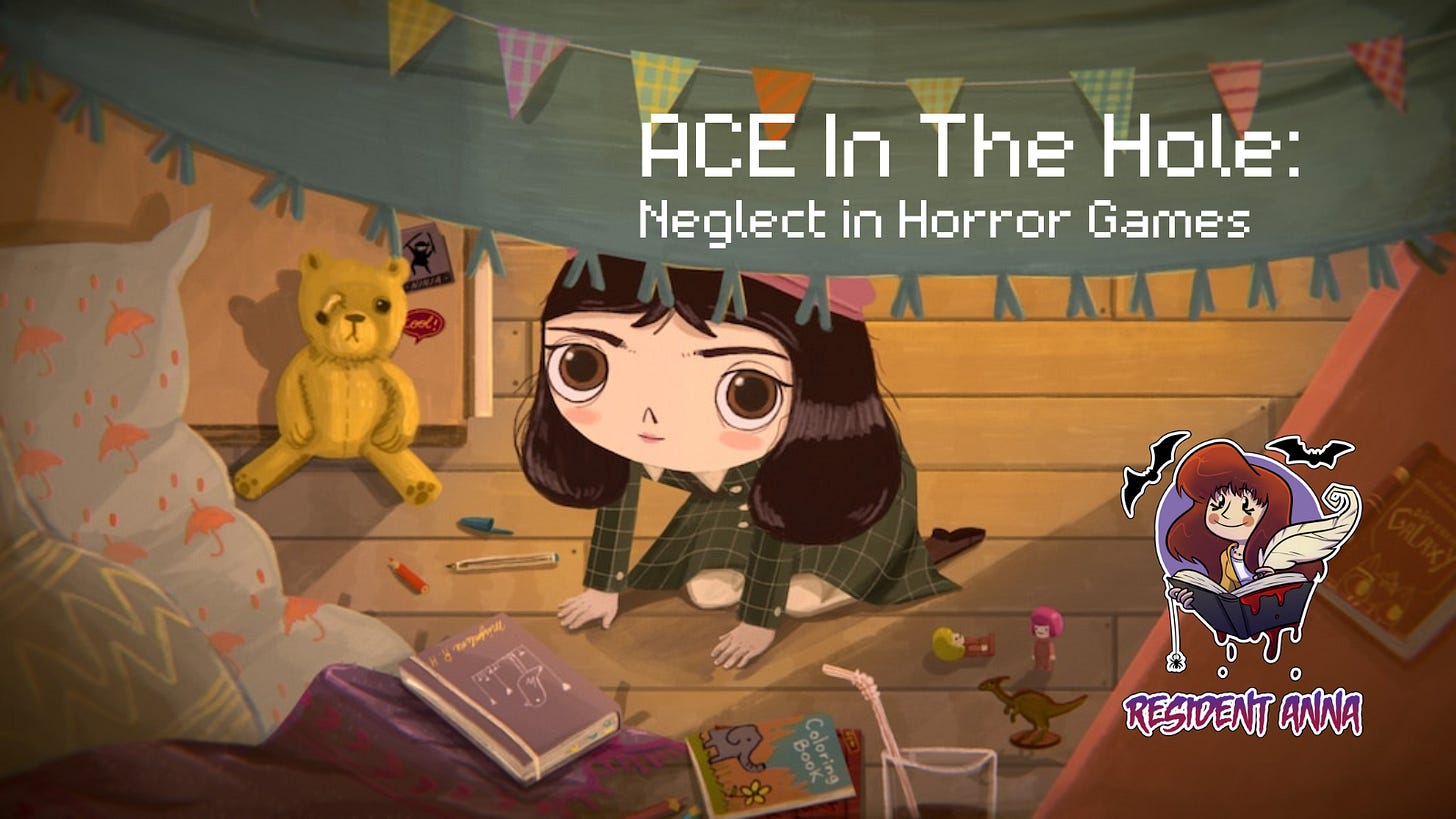
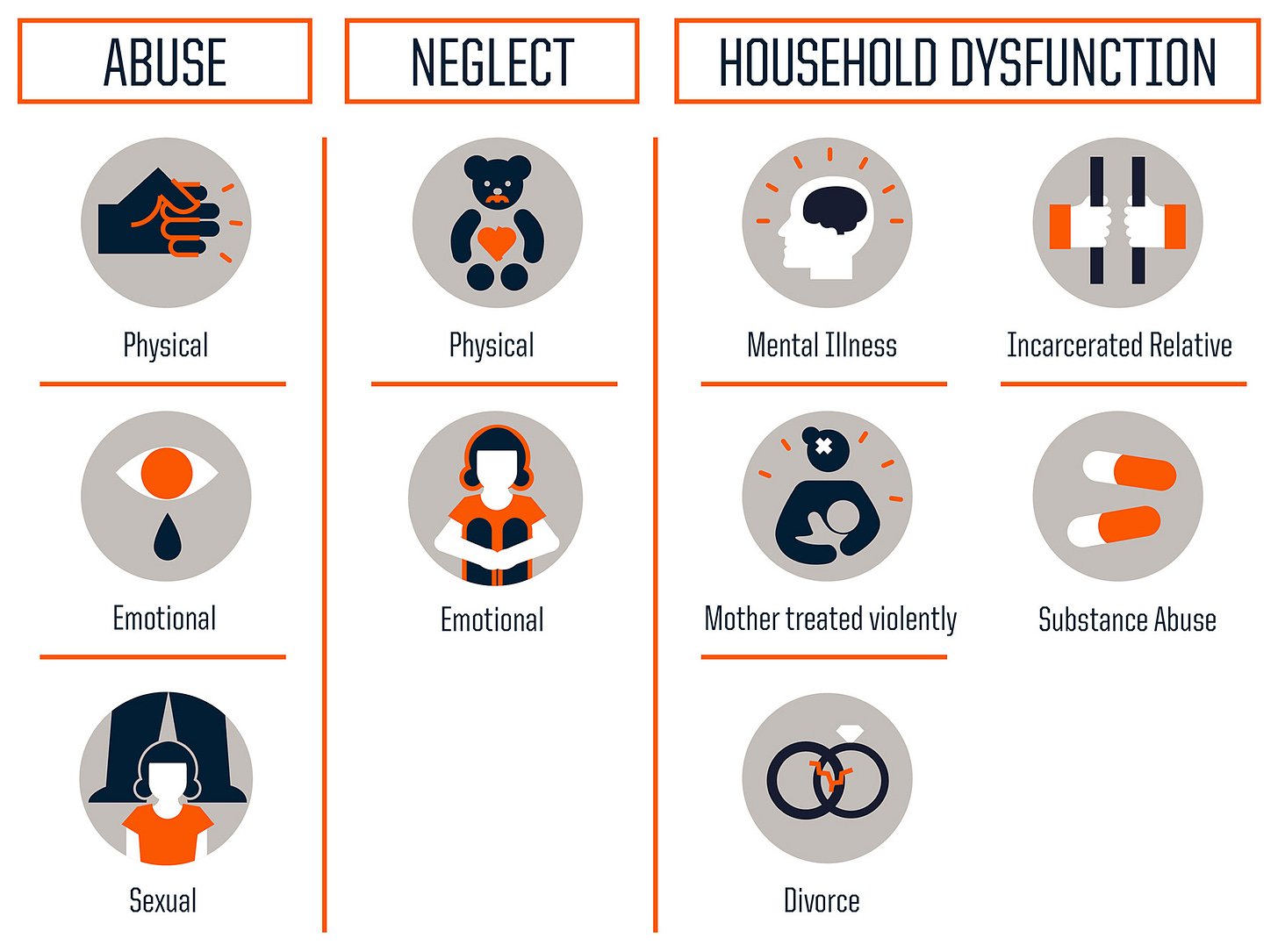


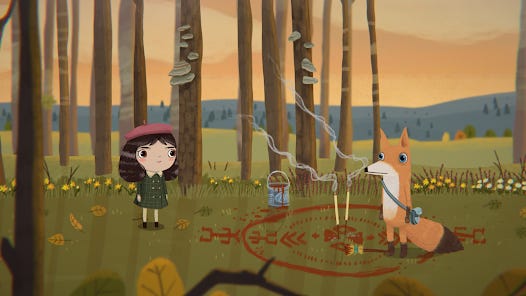



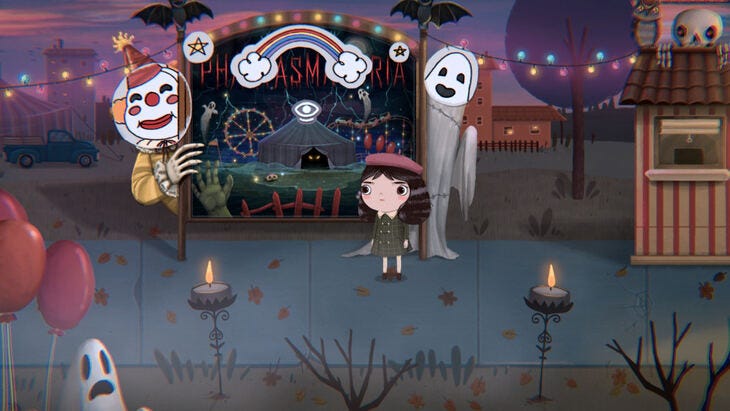
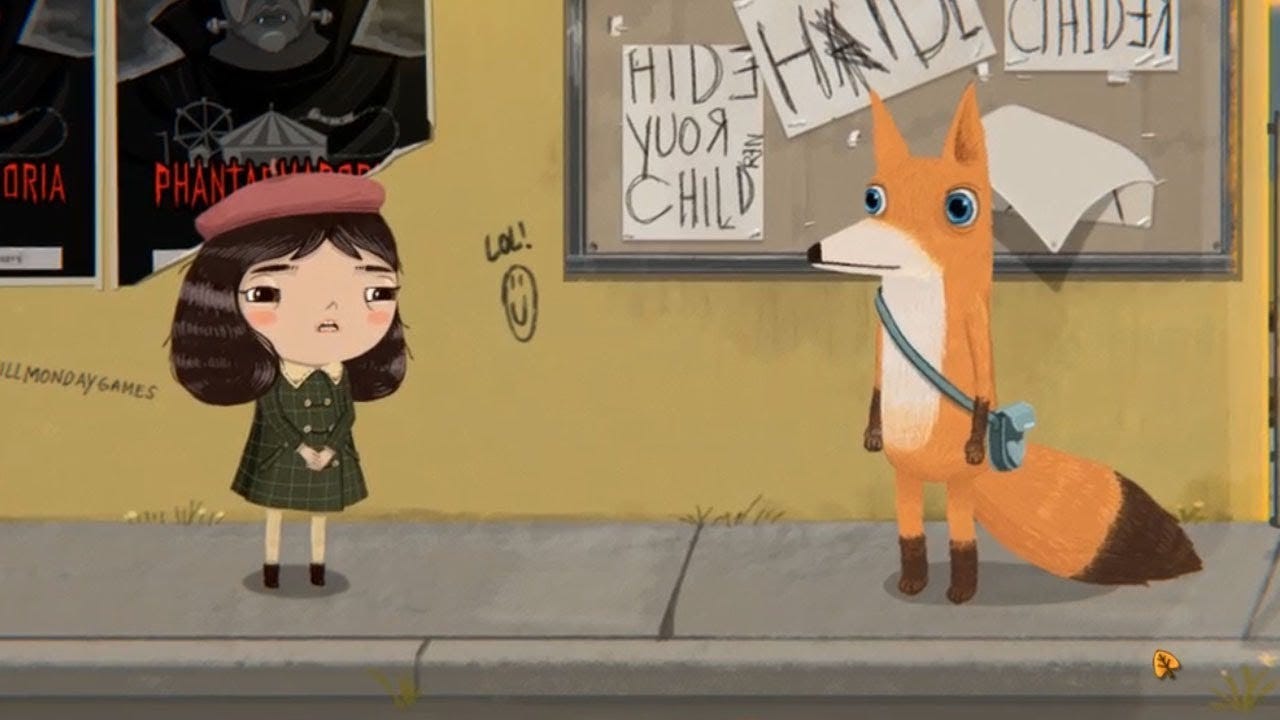

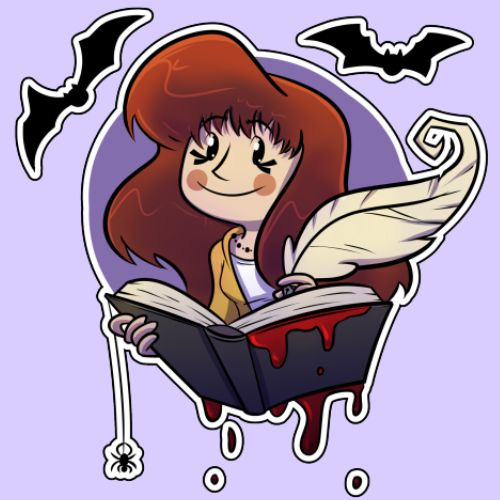
Gosh I really appreciate the way you shed light on games - Really accentuating video games as art. And this was the perfect game to discuss ACEs with! Given I do neuroscience research with a focus on early life stress and ASD, I do a lot of reading/ research around ACEs and I appreciate the way you discussed and applied it here!